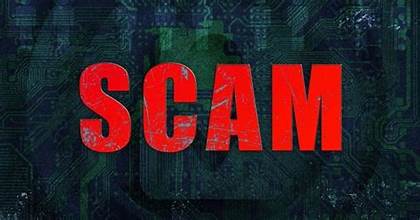


In a recent landmark judgment, the Supreme Court of India overturned a Bombay High Court decision that had granted bail to one of the accused in a massive financial scam involving the Jai Shriram Urban Credit Co-operative Society Limited. The case, titled Manik Madhukar Sarve & Ors. v. Vitthal Damuj Meher & Ors., focused on the alleged misappropriation of over ₹79 crore, affecting hundreds of depositors.
The Scam: A Brief Overview
The central point of the arraignment is the Jai Shriram Urban Credit Co-operative Society Restricted, where they found significant budgetary errors. The Society's President, Khemchand Meharkure, is charged to have stolen an sum totaling ₹79,54,26,963/- (Rupees Seventy Nine Crores Fifty Four Lakhs Twenty Six Thousand Nine Hundred and Sixty Three). The chargesheet too appears that 798 investors were not discounted stores totaling ₹29,06,18,748/- (Rupees Twenty Nine Crores Six Lakhs Eighteen Thousand Seven Hundred and Forty Eight), demonstrating the broad nature of the extortion.
Manik Madhukar Sarve, the appealing party in this case, is fair one of various contributors said to have been tricked by this false conspire. The prosecution carefully recorded financial improprieties under twenty-three categories, revealing an extensive and organized scheme of deception.
Respondent No. 1, Vitthal Damuj Meher, was a close associate of the alleged mastermind, Khemchand Meharkure. The chargesheet revealed that Meher deposited ₹2,38,39,071/- (Rupees Two Crores Thirty Eight Lakhs Thirty Nine Thousand and Seventy One) in the Society, which was later followed by a withdrawal of ₹9,69,28,500/- (Rupees Nine Crores Sixty Nine Lakhs Twenty Eight Thousand Five Hundred). This substantial financial assistance was allegedly directed by Meharkure, and the prosecution argued that this clearly established Meher's involvement in the scam.
High Court’s Bail Order
The Bombay High Court's Nagpur Bench granted bail to Meher, noting that the material on record was insufficient to establish his complicity. The court emphasized that while the charges were serious, they did not directly implicate Meher as a key conspirator. This decision was met with significant opposition from the appellants, who argued that the High Court had overlooked crucial evidence linking Meher to the scam.
Supreme Court’s Analysis and Verdict
Upon receiving the appeal, Justice Ahsanuddin Amanullah led the Supreme Court in closely analyzing the High Court's ruling. When deciding on bail applications, the Court stressed the significance of taking into account the type of accusation, the assigned role of the accused, and the possibility of evidence tampering.
The Supreme Court, in its comprehensive ruling, declared:
"The learned Single Judge, in the impugned order, has simply proceeded on the premise that there were only allegations made by some persons against the respondent no.1 and he was not a member of the Society which had committed such financial irregularities. Moreover, we find that the learned Single Judge, whilst noting that 'no positive finding need be recorded on the sufficiency of the said material to establish conspiracy, which issue will be addressed by the trial Court, after the evidence is adduced', has without any basis thought it fit to record that in his 'prima facie opinion, it is extremely debatable whether such material is sufficient to establish conspiracy.'"
The Court found that the High Court had failed to appreciate the gravity of the charges and the material on record. It concluded:
“The exercise of discretion by the learned Single Judge in the impugned order under Section 439(1)2 of the Code of Criminal Procedure, 1973, granting bail to the respondent no.1 cannot be sustained.”
This judgment underscores the Supreme Court's firm stance on bail matters, particularly in cases involving significant financial frauds.The choice to revoke the High Court's bail ruling emphasizes the importance of careful application of legal principles in sensitive cases. The next step is the trial stage, during which the evidence will be closely examined, and the involvement of each defendant will be thoroughly reviewed.
TAGS: Supreme Court judgment bail cancellation financial misappropriation Jai Shriram Urban Credit Society Section 439 CrPC High Court discretion forensic audit criminal appeal role of accused public interest.